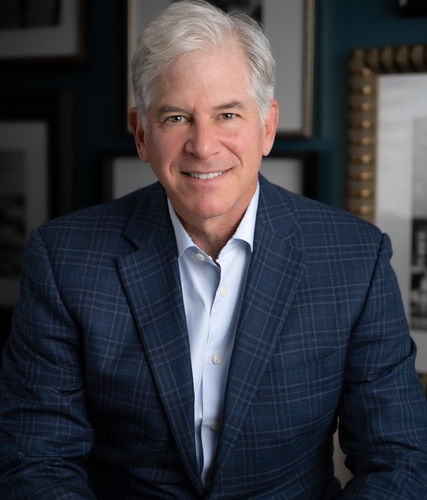
By Daniel Coats ’15, ’18
Andy Fastow, the former CFO of Enron, is now on a mission to educate the business community on the importance of ethics. He will be a keynote speaker at the SEC “Hot Topics” Conference at Cal State Fullerton’s College of Business and Economics on Sept. 22.
When Enron, the world’s largest wholesaler of gas and electricity and a major technological visionary firm, declared bankruptcy on Dec. 2, 2001, it sent shockwaves throughout the global economy.
For months, the company had fraudulently claimed to be in a better financial standing than it really was, and the surprise collapse, combined with the tragedy of 9/11 and the broader Dot-Com downturn, sparked widespread fears about the health of corporate America that persisted for years.
In the years that followed, Enron executives Kenneth Lay, Jeffrey Skilling and Andy Fastow became infamous household names.
While many of the company’s leaders ultimately went to prison for misleading investors, employees and the public about the state of Enron’s financial health, former Enron CFO Andy Fastow is the only ex-Enron executive to take full responsibility for his actions.
“I believe what I did was wrong, unethical and illegal,” says Fastow, who is now a speaker focused on highlighting the ethical dilemmas facing the corporate world today.
“At the same time, I recognize that Enron was not a compliance failure, as is commonly believed. Our attorneys and auditors would often provide ironclad, unqualified opinions that what we were doing was legal. But no one asked if it was ethical, acceptable behavior.”
Fastow’s focus today is helping accountants, executives, regulators and other business professionals appreciate the importance of thinking critically about so-called “gray areas”: where an action might be legal, but might not be ethical or the prudent decision.
Law vs. Ethics: Understanding the Difference and Changing Your Mindset
In 2002, in the wake of the Enron and WorldCom scandals, Congress passed one of the farthest-reaching corporate reporting legislations in its history: the Sarbanes-Oxley Act. Though designed to protect shareholders, employees and the public against fraudulent accounting and financial reporting, the act didn’t wholly address the problems at Enron. The act was all about compliance and not about ethical decision-making.
“It’s not a comfortable discussion for many in the business world today,” says Fastow. “We’ve all been trained to be in a rules-based society. But what are the techniques you might use and questions you might ask when you are in gray areas?”
When Fastow looks back at the corporate disasters of the past quarter century – whether Enron or the 2008 financial crisis or the failure of regional banks such as Silicon Valley Bank earlier this year – he sees a commonality of thinking about and managing risk that is similar to how he thought in 2000, before the Enron implosion.
“I’m hoping to set an alarm in people’s minds so when they find themselves thinking that way, they will recognize it,” he says. “The danger is always the gray area. The rules may permit you to do something. So, what you’re doing may be technically correct, but there are hidden dangers you aren’t seeing.”
In the high energy, aggressive and competitive business culture of the late 1990s, Enron and other companies were always trying to find ways to make money. It was an anything-goes atmosphere.
“Corporate governance has improved since then, but we’re not asking all the right questions to avoid disasters,” he observes. “Company after company fails to think about the consequences after a deal is approved. Your brain is biased to believe that if you’re following the rules, there is no risk. But it’s deeper than that.”
Projecting out to the broader society, Fastow notes that the difference between legality and ethicality can be seen in many debates.

Enron: The Bad and the Ugly, But Also the Good
For those old enough to remember, Enron was a byword for the so-called transgression crisis – the term public relations professionals use for moral and ethical failures that create a corporate or institutional crisis.
But while fully accepting Enron’s moral and ethical turpitude, Fastow reminds us that Enron was in many ways far ahead of its time.
Think of video conferencing, which kept business and education going through the COVID pandemic and is transforming the workplace and classroom of the 2020s. Enron was pioneering those technologies in the year 2000.
Enron was also a leader in alternative energy sources, such as wind power.
“Enron would be worth multiples of what it was worth at its peak if it still existed today,” says Fastow. “Though Enron had tremendous problems, it also had tremendous value.”
And even in its failures, Enron’s scope and reach was much broader than many people recognized at the time.
Remember the rolling blackouts in California in 2001? That crisis played a major role in the recall election of Governor Gray Davis in 2003 and the rise of Arnold Schwarzenegger. But it was actually Enron traders who were responsible for much of the electricity crisis, as they would buy and sell electricity and game the system in keeping with poorly written regulations.
The rise and fall of Enron thus helps us to understand the hidden dangers of ethical dilemmas in business as well as the rise of our high-tech society and how many of the crises of the “lost decade” of the 2000s came about.
For More on the SEC Conference
Cal State Fullerton’s 22nd Annual SEC “Hot Topics” Conference, designed for auditing, accounting and risk compliance professionals, will include a keynote address by Fastow and another by SEC Commissioner Mark Uyeda.
The Sept. 22 virtual event will include updates on ESG rules, the future of accounting in light of AI, resilience in our time of natural and manmade disasters, and much more.
For more on the conference or to register, visit the SEC Conference homepage.